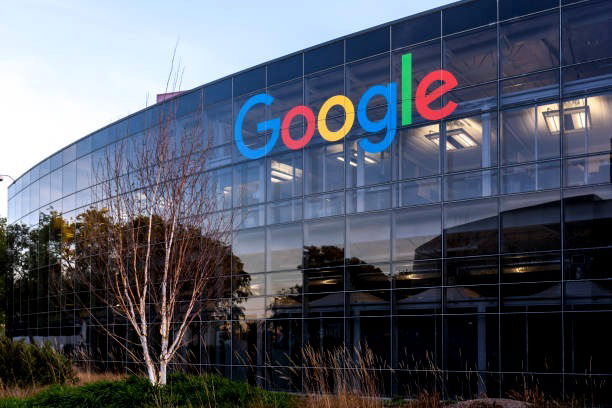Alphabet Inc.: Driving Innovation Through Google and Beyond
Introduction
Alphabet Inc., the parent company of Google, stands as a titan in the global technology landscape. Founded in 2015 as a restructuring of Google, Alphabet was created to streamline operations, foster innovation, and allow its diverse ventures to flourish independently. With Google as its cornerstone, Alphabet encompasses a wide array of subsidiaries, from AI research to autonomous vehicles, all united by a mission to organize the world’s information and make it universally accessible and useful.
This blog post delves into Alphabet’s evolution, its key divisions, groundbreaking innovations, societal impact, and its vision for the future. As a leader in the tech industry, Alphabet’s influence extends beyond search engines, shaping how we interact with technology in our daily lives.
A Brief History of Alphabet Inc.
Alphabet’s story begins with Google, founded in 1998 by Larry Page and Sergey Brin, two Stanford Ph.D. students. Their vision was to create a search engine that could efficiently organize the rapidly growing volume of information on the internet. Google quickly became synonymous with search, revolutionizing how people accessed information.
By 2015, Google had grown into a conglomerate with ventures far beyond search, including YouTube, Android, and Google Cloud. To manage this sprawling portfolio, Page and Brin announced the formation of Alphabet Inc., a holding company that would allow Google and other subsidiaries—referred to as “Other Bets”—to operate with greater autonomy. This restructuring enabled Alphabet to focus on long-term innovation while maintaining Google’s dominance in core businesses.
Today, Alphabet is headquartered in Mountain View, California, and led by CEO Sundar Pichai, who oversees both Alphabet and Google. The company’s market capitalization exceeds $2 trillion, making it one of the most valuable companies in the world.
Key Divisions and Subsidiaries
Alphabet’s structure allows its subsidiaries to pursue ambitious goals independently. Below are some of its most prominent divisions:
- Google: The heart of Alphabet, Google encompasses search, YouTube, Android, Google Cloud, and hardware like Pixel smartphones. It generates the majority of Alphabet’s revenue through advertising.
- Waymo: A leader in autonomous driving, Waymo develops self-driving technology for vehicles, aiming to revolutionize transportation.
- Verily: Focused on life sciences, Verily uses data-driven approaches to improve healthcare, with projects like smart contact lenses and disease detection tools.
- DeepMind: A pioneer in artificial intelligence, DeepMind focuses on advancing AI research, with applications in healthcare, gaming, and scientific discovery.
- X (The Moonshot Factory): X incubates Alphabet’s most audacious projects, such as Project Loon (internet-beaming balloons) and quantum computing initiatives.
These subsidiaries, among others, reflect Alphabet’s commitment to tackling global challenges through technology, from climate change to healthcare.

Groundbreaking Innovations
Alphabet’s innovation is driven by its ability to combine cutting-edge research with practical applications. Here are some of its most notable contributions:
- Search and AI: Google’s search engine, powered by sophisticated algorithms and machine learning, processes billions of queries daily. AI advancements, like the BERT model, have improved natural language understanding, making search results more relevant.
- Cloud Computing: Google Cloud is a major player in the cloud market, offering scalable infrastructure and AI tools to businesses worldwide.
- Autonomous Vehicles: Waymo’s self-driving cars have logged millions of miles, bringing autonomous transportation closer to reality.
- Quantum Computing: Alphabet’s quantum computing efforts aim to solve complex problems beyond the reach of classical computers, with potential applications in cryptography and materials science.
- Healthcare: Verily and DeepMind are leveraging AI to advance medical research, from predicting disease progression to streamlining clinical trials.
These innovations underscore Alphabet’s role as a pioneer, pushing the boundaries of what technology can achieve.
Societal and Economic Impact
Alphabet’s influence on society is profound, touching nearly every aspect of modern life. Google’s search engine and services like Gmail, Google Maps, and YouTube have become indispensable tools for billions of users. Android powers over 70% of the world’s smartphones, democratizing access to technology.
Economically, Alphabet is a powerhouse. In 2024, it reported revenues exceeding $300 billion, primarily from advertising. Its investments in AI, cloud, and emerging technologies create jobs and drive economic growth in Silicon Valley and beyond.
However, Alphabet’s dominance has sparked debates about privacy, data security, and market competition. The company has faced antitrust scrutiny in the U.S. and Europe, with critics arguing that its control over search and advertising stifles competition. Alphabet has responded by emphasizing transparency and user control over data, but these challenges remain a critical part of its narrative.
The Future of Alphabet Inc.
As Alphabet looks to the future, its focus is on harnessing AI to solve complex problems. Initiatives like Google’s Gemini AI model and DeepMind’s breakthroughs in protein folding demonstrate its commitment to advancing scientific discovery. Waymo’s expansion into autonomous ride-hailing services signals a shift toward new mobility solutions.
Alphabet is also investing heavily in sustainability, aiming to achieve carbon neutrality across its operations. Projects like Google’s renewable energy initiatives and X’s climate-focused moonshots highlight its dedication to addressing global challenges.
Despite regulatory hurdles, Alphabet’s diversified portfolio and relentless innovation position it to remain a leader in the tech industry. Whether through AI, healthcare, or transportation, Alphabet is poised to shape the next era of technology.
Conclusion
Alphabet Inc. is more than just Google—it’s a conglomerate that embodies the spirit of innovation. From its origins as a search engine to its current role as a leader in AI, cloud computing, and beyond, Alphabet continues to redefine what’s possible. Its impact on society, the economy, and technology is undeniable, and its future promises even greater advancements.
As Alphabet navigates challenges and opportunities, its mission remains clear: to organize the world’s information and make it universally accessible and useful. For tech enthusiasts, investors, and everyday users, Alphabet’s journey is one to watch closely.
© 2025 Tech Insights Blog. All rights reserved.